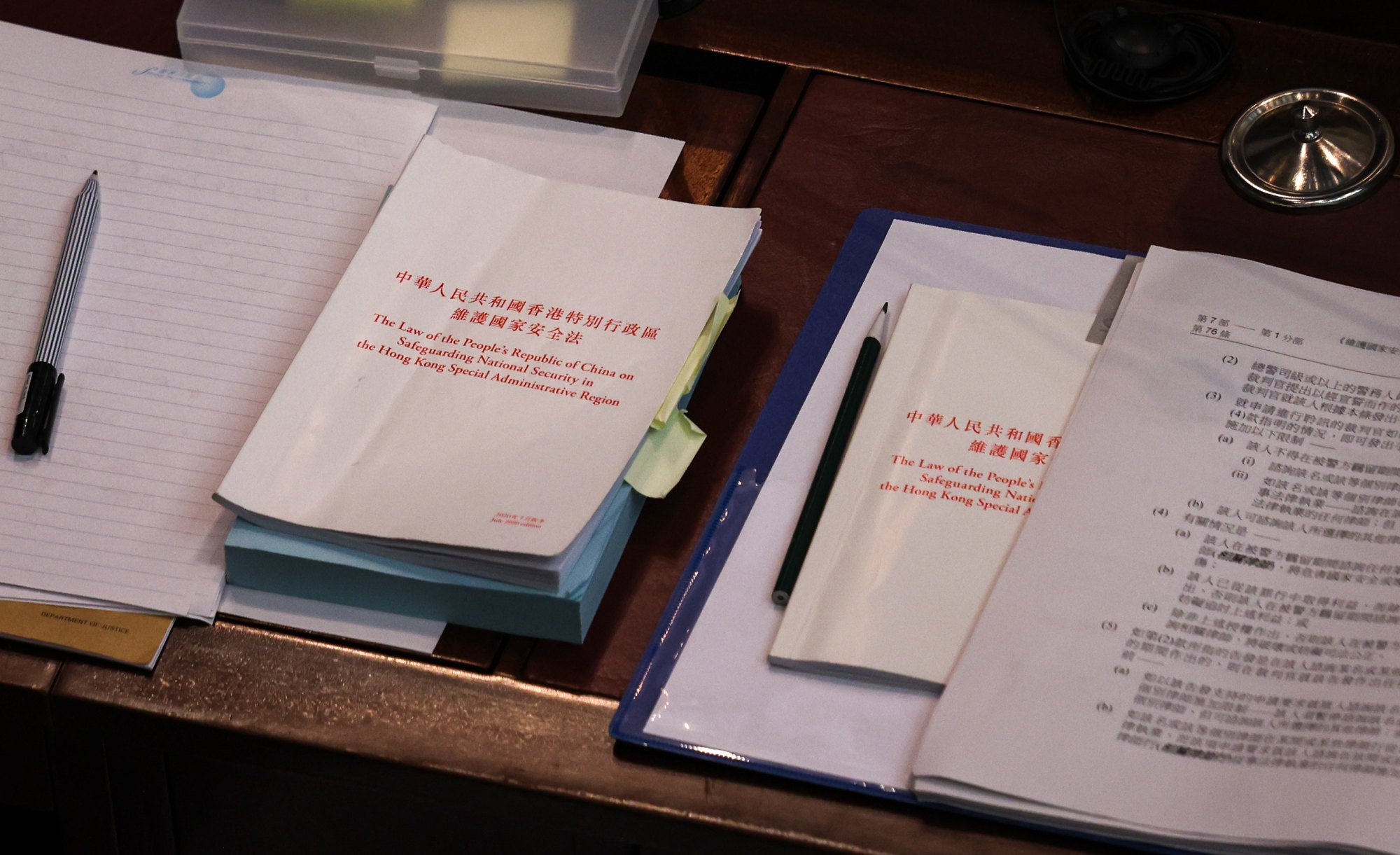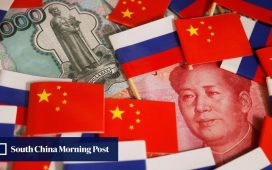At least 93 out of 181 of the clauses in the legislation have been vetted by lawmakers since Friday.

The bill outlines five conditions to name an absconder, including a period of six months after a warrant has expired, which lawmakers have argued should be removed as it may delay the need to take certain actions, such as cutting off funding.
If the condition is removed, the security chief will be able to classify a suspect under the security law as an absconder soon after the issuance of a court warrant and notifying relevant parties, provided he has reasonable grounds to believe the accused is not in the city.
Tang said clauses concerning shared immovable properties and joint businesses between absconders and innocent third parties would be clarified further, adding pre-existing real-estate contracts with absconders would not violate the bill.
Hong Kong lawmakers discuss longer detention time for suspects in Article 23 bill
Hong Kong lawmakers discuss longer detention time for suspects in Article 23 bill
The legislation would also protect individuals involved in joint ventures or investments with an absconder prior to their identification, he added.
“We believe that even after the modifications, the bill will still effectively address and combat issues regarding absconders while balancing the interests of third parties,” Tang said.
The bill, which is under scrutiny at the city’s legislature, targets five types of offences – treason, secession, sedition, subversion against the central government and theft of state secrets.
Lawmakers on Tuesday also discussed clauses suspending an absconder’s professional qualifications, which could be restored once the person in question was brought to court.
Detention period in Hong Kong security bill ‘enough time to investigate’
Detention period in Hong Kong security bill ‘enough time to investigate’
According to the bill, those in charge of overseeing a qualifications register are required to update it “from time to time” in view of a suspension.
Lawmakers, including Kennedy Wong Ying-ho and Tommy Cheung Yu-yan, asked if the government would change the terms “from time to time” to “within a reasonable time” to put pressure on relevant organisations to exclude absconders from their lists.
Acting deputy law draftsman Emma Wong said every organisation had their own code of practice to handle qualification suspensions, and the government would leave it to them to follow their own rules.
“But how can the government ensure that relevant organisations are informed of the government’s decision to name a suspect an absconder?” lawmaker Kitson Yang Wing-kit said.
“And what will the government do if the concerned absconder also has a qualification to practise in foreign countries based on the qualifications gained in Hong Kong?”
Tang said the government would immediately inform relevant organisations once a decision was made, including those established in accordance with local laws and located outside Hong Kong.
“If any foreign organisations continue to recognise an absconder’s qualifications to practise, I believe its credibility could be challenged,” he added.

Secretary for Justice Paul Lam Ting-kwok said: “The purpose of all clauses we have proposed to target absconders is to encourage them to come back. We should bear in mind that absconders are suspects, not convicts.”
He said the government did not intend to influence any decisions made internally by the organisations or companies.
While the bill also stipulates that the Hong Kong passport of an absconder will be cancelled, the government stressed such a move would be “permanent”.
Replying to her question, security chief Tang said: “According to the existing mechanism, we will notify foreign countries, as well as airline companies, about the passport cancellation.”
The government would also consider prohibiting absconders from applying for a new passport as part of the bill.













